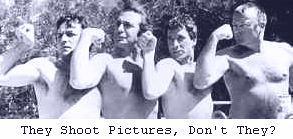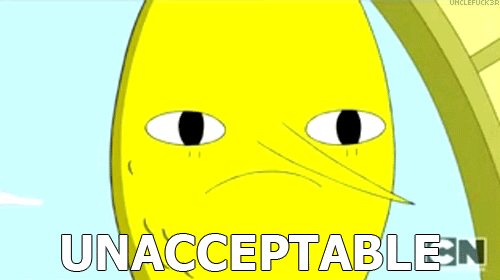The next film on the list is something a little different -- this one's a documentary from 1988 called The Thin Blue Line. Having read the description on Netflix, I have a feeling that this might serve as a companion piece to my 12 Angry Men review.
The Thin Blue Line is a term to describe police officers, being the one thing that stands between order and chaos. In 1976, a police officer was gunned down in Dallas County, Texas. This documentary is the story of Randall Adams, the man who was convicted of the crime, and his trial.
What becomes clear relatively quickly is that this was one hell of a botched investigation. Unreliable witnesses abound. This case was about cop-killing, and while that's a good way to get an emotional jury, it doesn't necessarily ensure a fair trial There was an urgency to get the person responsible behind bars that was counterproductive to justice. When you just want someone punished for a crime so that you can say that a dead police officer has been avenged, you're not going to be overly concerned about whether or not you caught the right person.
And then there's the matter of David Harris, the actual murderer. This young guy has sociopath written all over him, with a complete inability to empathize with his victims. He was a kid with a violent past, in the middle of a crime spree, with more than enough motive to kill a cop. But because he was a local boy from Vidor, Texas, while Randall Adams was something of a drifter from Ohio, Harris served as a witness for the prosecution instead of getting charged with anything.
Another aspect of the case that I think the film addresses is the issue of justice versus vengeance. People were outraged, and the District Attorney's office wanted the person responsible to go to the chair. David Harris was only sixteen at the time, and you can't give the death penalty to an underage kid. Randall Adams, on the other hand, was a 28-year-old from out of town that no one would really miss much.
Anyway, the film is an incredibly interesting look at how badly cases can be handled and how outside factors can easily influence a conviction. It's also a stylistically influential documentary, revolutionizing crime scene reenactments and interview techniques. I think it works very well as both an examination of the American criminal justice system and an indictment of the death penalty.
It's worth mentioning that this movie was one of the primary factors than got Randall Adams released from jail after serving 13 years for a crime he didn't commit. Meanwhile, David Harris died by lethal injection in 2004 for an unrelated murder.
Random Musings:
- "He almost overacted his innocence. He protested that he hadn't done anything." OK...but if I was arrested for murdering a police officer in Texas of all places, I think I would probably be pretty freaking adamant that I didn't do anything too.
- "The thing I think we did then that really helped. Or, it didn't really help anything, at all, but it was interesting." Oh...ok.
- They hypnotized the policewoman? Seriously? That's how they're getting evidence that's going to kill someone??? Do courts even allow that crap to be admitted as evidence? Why not just bring in a psychic, while they're at it?
- OK, so I generally don't think it's a real brilliant idea to be driving around with some asshole you don't know who's carrying a pistol. Then again, this is Texas...you probably wouldn't have many friends if you stuck to only unarmed people.
- OMG, Vidor, Texas! I did some research and this is an interesting town. It's sort of like it fell through a time warp. In 1993, the federal government tried to desegregate the town (in 1993), by moving in three African-American families into the low-income housing projects (in 1993), but it failed (in 1993!!!). And I love that all they have to do there to make people suspicious of the defense lawyer is to insinuate that he was Eastern-educated.
- Something I found kind of interesting about the film is that Adams is actually a very engaging speaker. He comes off as a reasonable, relatively intelligent guy who's good at expressing himself.
- The only thing I think I would have changed about the film is to identify the people who are being interviewed. There's a lot of different people and it gets a little confusing when they first start talking and you're like, "Wait. Who are you?"
- Wow...no offense David Harris, but the reason the woman with the scales wears a blindfold is because "Justice is blind", not because we don't get to see what goes on behind closed doors. You serious?
- The recorded interview at the very end of the film is so chilling, how Harris totally admits that not only did he kill the police officer, but that he's the one who cast suspicion on Adams in the first place. It's something the film obviously builds to for a long time, but it's somehow different hearing him actually say it. It all just comes off as so tragic and pointless.
Thanks for reading, and come back next time!












0 comments:
Post a Comment